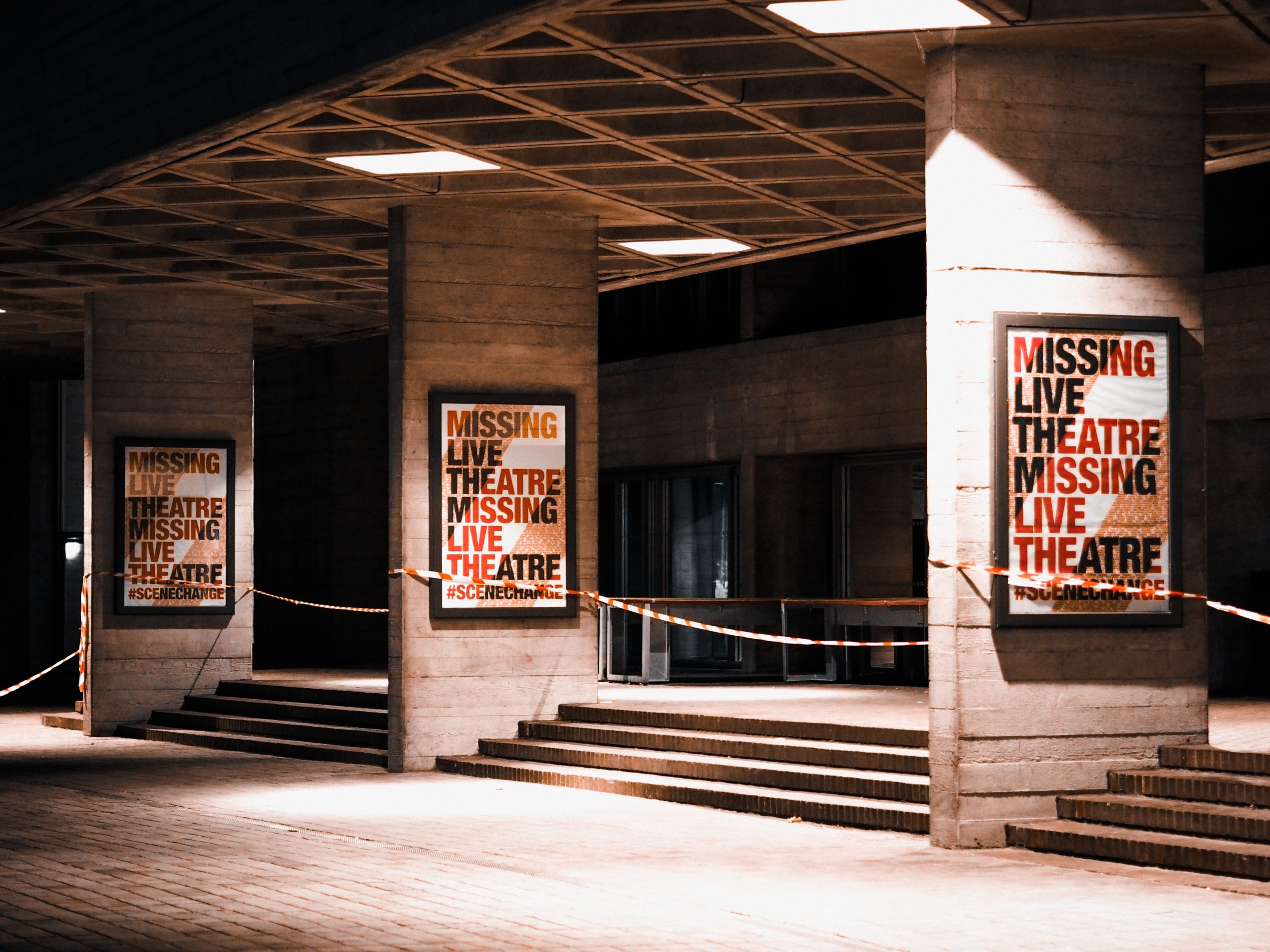By Michael Barker
Photo by Liza Pooor on Unsplash
If I had known that my trip to the theatre last spring would be my last, I would have bought out a whole row of seats with my friends, drunk multiple pre- and post-show pints, laughed and cried until it hurt, and clapped at the curtain call until my hands were forced apart. I would have stood in sub-zero temperatures at the stage door to await the cast’s departure, and drunkenly mouthed the ears off of an amateur theatre enthusiast at how I’d never seen such an earnest and original portrayal of a farm animal. I would have savoured every single one of the shared rituals that theatre provides for the precious experiences they were, because I could never have imagined the level of emptiness that I would feel without them.
Theatre inherently lies in community and a shared experience of liveness, and naturally it has been impacted, possibly irreparably, by the pandemic. With the exception of some attempts at socially distanced performances, theatre switched off its lights in March last year and has been silenced ever since. The majority of the industry has been out of work, and many have had to shelf their careers indefinitely due to the uncertainty of when jobs may come around again.
Creatives have since taken their place on the digital stage and produced some genuinely charming pieces of work, but it’s been hard to recognise any of it as ‘theatre’. Especially archived performances have been uploaded to YouTube, which make for an entirely independent user experience with no common rituals. There’s no ‘dinner and a show’ element of excitement that comes with gazing into the same screen that has told you: you’re failing third year, you’re in your overdraft, or that another lockdown is looming. The magic of theatrical time can’t be experienced online because the performance is happening on the exact same screen that our whole lives are being lived. It hurts, but it sometimes feels like theatre is trying to make a ground-breaking transition to an online platform that already thrives without it.
I write this piece with a heavy heart and perhaps that’s where my pessimism lies. I know that because of the exceptional abilities and creativity of everyone in our industry, theatre will come out on top again at the end of this, but this time with the ability to seamlessly transition into an increasingly digitalised world. The actual content of online work has often been incredible and kudos have to be given to the likes of Gob Squad, Forced Entertainment and the wide range of amateur theatre companies that have evolved and adapted with total precision, and a careful understanding of what exactly can be achieved on an online stage. The reason I feel the need to type an obituary is not in any way due to a loss of quality, but due to an unavoidable alteration of the theatre experience we know and love in the ‘new normal’.
A survey by Creative Scotland from last August found that, although many are keen to get back, there are a number of people who are very wary to return to theatres and concert venues when they reopen. There is a growing section of society who have been totally scarred by the seemingly worsening coronavirus headlines and fear-mongering tactics used to encourage complicity and group-effort in the pandemic. It’s unlikely that everyone I sat in that theatre with back in February is going to be totally comfortable attending the same venue whenever restrictions ease up. There will be a selection of former theatregoers who are simply not willing to set foot in large theatres ever again, and learning from the setbacks and difficulties of the current online stage is ultimately going to help the industry when restrictions start to ease.
Digitalising theatre effectively will also make the art-form far more accessible in years to come. The Tron’s new piece, ‘HOTLINE’, allows people to go on a ‘lunar adventure’ and solve quests, all from the comfort of their mobile device. The fact that I can enjoy the same piece of theatre at the same time as someone in Shetland or the Hebrides is a phenomenon that we should cherish and capitalise on. There’s also something to be said about the growing archives of theatre institutions online. Although I don’t personally want to watch an old recording of James Corden milking ‘One Man, Two Guvnors’, making it more freely available is a step in the right direction for our industry. Creating a hybrid of face-to-face theatre and working within the digital sphere could be the key to keeping the artform both popular and financially stable in the post-pandemic world.
Theatre will be reborn. Lights will switch on, cast members will bow, and we’ll clap until our hands are red and wonder how we ever took it all for granted. Still it will never be the same ‘theatre’ that we once knew, but maybe this isn’t such a bad thing.

